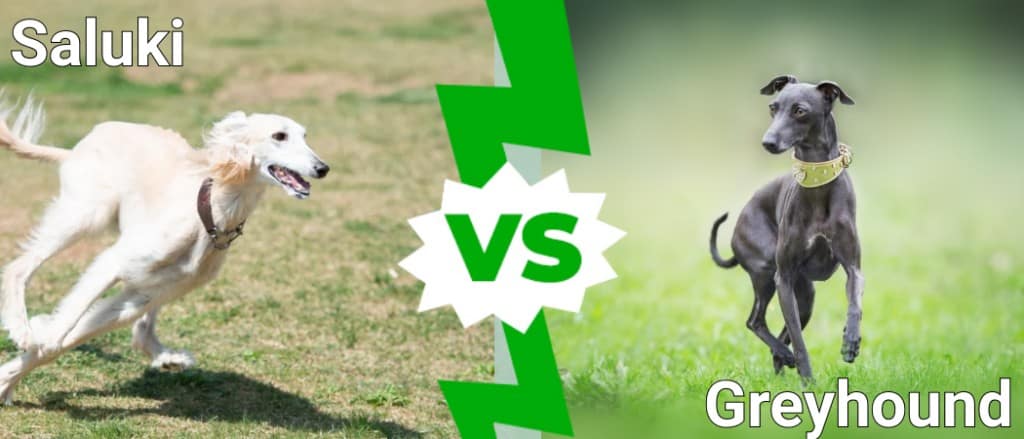Salukis and Greyhounds are both elegant and athletic breeds of dog that have been popular for centuries. While they may look similar at first glance, there are key differences between these two breeds that make them distinct from one another. In this article, we’ll take a closer look at Salukis vs. Greyhounds and explore their unique characteristics.
Appearance
One of the most noticeable differences between Salukis and Greyhounds is their appearance. Salukis have a slightly longer and more slender body than Greyhounds, with longer necks and tails. They have a narrow heads and a deep chest, and their coats can come in a wide range of colors and patterns.
Greyhounds, on the other hand, have a shorter and more compact bodies than Salukis. They have a deep chest and long legs, with narrow heads and tapered tails. Greyhounds also have a short, smooth coat that can come in a variety of colors.
Temperament
Another key difference between Salukis and Greyhounds is their temperament. Salukis are known for being loyal and affectionate with their owners, but they can be aloof with strangers. They are also independent dogs who prefer to have their own space and may not be as cuddly as other breeds.
Greyhounds, on the other hand, are known for their friendly and gentle nature. They are affectionate with their owners and are generally good with children and other pets. Greyhounds can be sensitive and may be prone to separation anxiety if left alone for long periods of time.
Exercise Needs
Both Salukis and Greyhounds are high-energy breeds that require a lot of exercises to stay healthy and happy. However, Salukis tend to have more endurance than Greyhounds and are known for their ability to run for long distances. They need regular opportunities to run and play and maybe happiest in a home with a large, fenced yard where they can run freely.
Greyhounds, on the other hand, are built for speed and are known for their incredible sprinting abilities. They need regular exercise to maintain their muscle tone and may enjoy short bursts of high-intensity activity. Greyhounds may be content with a daily walk or two, but they also benefit from opportunities to run and play.
Training and Intelligence
Salukis and Greyhounds are both intelligent breeds of dogs, but they have different personalities when it comes to training. Salukis can be independent and stubborn, which can make them more challenging to train than other breeds. They may require a patient and consistent approach to training, and may not respond well to harsh or negative reinforcement.
Greyhounds, on the other hand, are generally eager to please and respond well to positive reinforcement. They can be trained to do a variety of tasks, including obedience training, agility training, and even therapy work. Greyhounds are also known for their intelligence and problem-solving skills and may enjoy puzzles and other mentally stimulating activities.
Health Concerns
Both Salukis and Greyhounds are generally healthy breeds of dogs, but they can be prone to certain health issues. Salukis may be prone to eye problems, such as cataracts and retinal atrophy, as well as autoimmune diseases and cancer. Greyhounds may be prone to bone and joint issues, such as hip dysplasia and osteosarcoma, as well as dental problems and heart disease.
Conclusion
Salukis and Greyhounds are both beautiful and athletic breeds of dogs that have unique characteristics and personalities. While they may look similar, they have different temperaments, exercise needs, and health concerns that make them distinct from one another. As with any breed of dog, it’s important to do your research and choose the breed of your choice.









